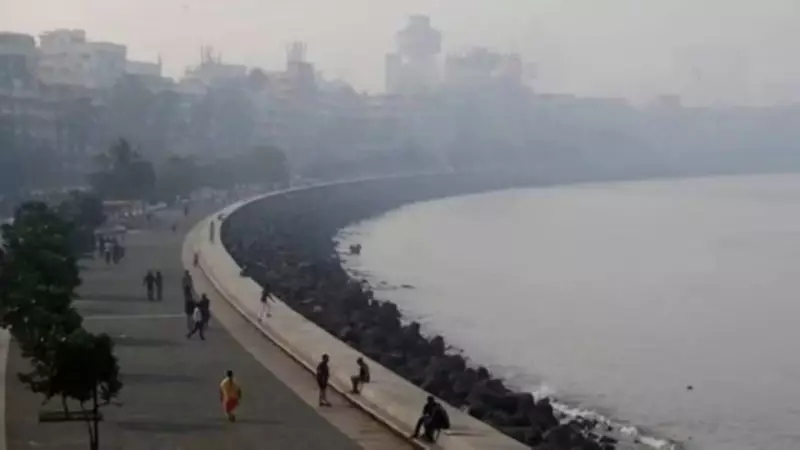
Mumbai residents woke up to an unusually chilly Wednesday morning as the city recorded its coldest November day in at least a decade. The mercury plunged to a surprising 16.2 degrees Celsius at the Santacruz weather observatory, marking a significant departure from the typical November weather patterns.
Record-Breaking Cold Spell Grips Maximum City
The India Meteorological Department (IMD) confirmed that Wednesday's minimum temperature of 16.2 degrees Celsius at Santacruz represented the coldest November morning Mumbai has experienced in ten years. This reading was approximately 5 degrees below normal for this time of year, creating unexpected winter-like conditions across the metropolitan region.
Interestingly, while Santacruz recorded this dramatic temperature drop, the coastal Colaba observatory maintained a relatively warmer 21.6 degrees Celsius. This variation highlights the microclimate differences between Mumbai's suburban and southern regions, with coastal areas typically experiencing milder temperature fluctuations.
Historical Context and Weather Patterns
Weather records reveal that this week's temperature represents the coldest November day Mumbai has witnessed since 2016, when temperatures reached 16.3 degrees Celsius on November 11. The only other comparable instance in the past decade occurred earlier this year in 2024, when the minimum temperature dipped to 16.5 degrees.
Mumbai's current cold spell began earlier this month when minimum temperatures first dropped below the 20-degree mark on November 9. Since that date, temperatures have been gradually decreasing, creating an extended period of unseasonably cool weather. However, meteorologists clarify that winter hasn't officially begun, as the IMD recognizes only January and February as winter months in India.
The all-time lowest minimum temperature for November in Mumbai was recorded back in 1950 when it reached 13.3 degrees Celsius, indicating that while current conditions are unusual for recent years, they're not unprecedented in the city's weather history.
What's Causing the Chill and Future Outlook
IMD meteorologists attribute the ongoing cold spell to the influx of cold Northerly and North Easterly winds sweeping across Central and Peninsular India. These wind patterns have brought cooler air masses into the region, resulting in the noticeable temperature drop.
However, relief from the chill appears to be on the horizon. The weather bureau has indicated in its forecast bulletin that minimum temperatures are likely to increase in the coming days, with readings expected to soar above 20 degrees Celsius again soon. This prediction suggests that the current cold wave represents a temporary weather phenomenon rather than a permanent seasonal shift.
This recent temperature record follows another weather milestone earlier this month when Mumbai recorded its coldest daytime temperatures for November in a decade on November 2, when maximum temperatures reached 27 degrees. Unlike the current cold spell driven by wind patterns, that previous temperature dip was spurred by unseasonal showers that swept the region during the first week of November.





